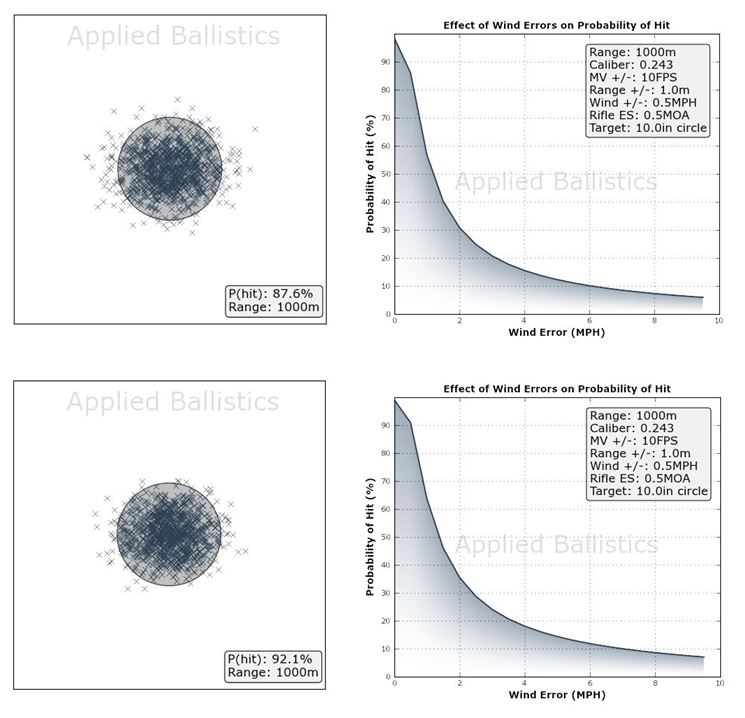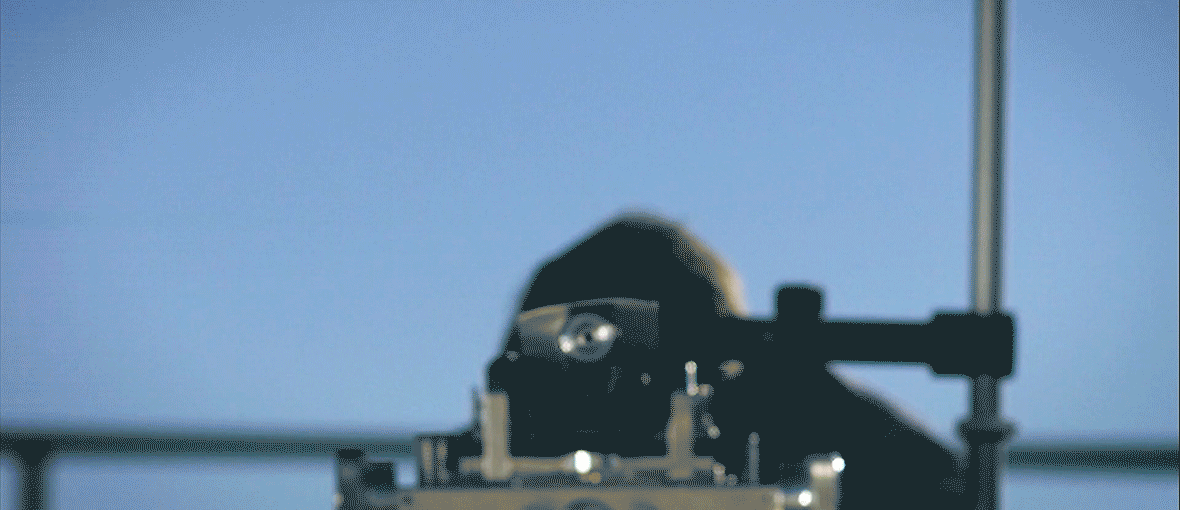You may have heard statements from shooters claiming that higher Ballistic Coefficient (BC) bullets are more accurate. Sometimes the statement is qualified as: “…more accurate at long range”. If you’ve ever wondered if, or why, these statements are true, the following two sections break it down.
BC Effect on Accuracy at Short Range
The bottom line is that there is no way for Ballistic Coefficient (BC) to practically affect accuracy at short range, meaning 100 yards, for modern centerfire rifles.
High BC bullets which tend to be long and heavy for caliber, requiring fast twist, and generating more recoil are often less precise, meaning they shoot bigger groups compared to lower BC bullets. The lower BC bullets tend to be lighter, faster, generate less recoil, and can be fired with slower twist rates which all aid in better precision, but do nothing for accuracy.
Recalling the definition of accuracy being how centered your group is on your intended aim point, there’s simply no mechanism for BC to affect this at close range. Short range accuracy is almost completely determined by your rifle being well assembled and your scope’s ability to hold zero.
BC Effect on Accuracy at Long Range
The primary role that Ballistic Coefficient (BC) plays in improved accuracy at long range is the ability of the bullet to overcome environmental uncertainties such as wind deflection. The reason why higher performance (higher BC) bullets perform overall better at long range is because they retain velocity better, which reduces their time of flight. Reduced time of flight correlates to less drop and deflection at all ranges.
One way to look at the challenge of hitting small targets at long range is to consider how sensitive your bullet is to the major influences of uncertainty. A high BC bullet will be deflected less in the wind than a lower BC bullet. “So what”, you might think, “I’ll just apply more correction for the lower BC bullet and still hit the target.” But that’s not how uncertainty works! In reality, you’re always guessing at the true wind speed and direction.
Bryan’s Tip: Even when a shooter uses a handheld anemometer such as a Kestrel to measure wind, you’re only measuring it at your location. Since wind is a fluid, it’s speed and direction are not the same all the way to the target, and also changes with time. Point being, if you can measure the wind at your location then it’s wise to do so, however it’s important to realize there is still uncertainty in the wind field.
Using indicators in the field to estimate what the wind speed, and it’s always changing. So for example, let’s compare a high BC bullet vs. a low BC bullet. Suppose we run the calculations and determine the high BC bullet is deflected 50 inches at 1000 yards in a 10 mph crosswind, and the low BC bullet is deflected 75 inches in the same wind. Suppose you estimate the wind to be 10 mph but it’s actually 12 mph. This is an error of 2 mph, which translates into a miss distance of 10 inches for the high BC bullet, and 15 inches for the low BC bullet.

The 6mm 108gr Boat Tail (top) has a 0.268 G7 BC. The 6mm 109gr LRHT (bottom) has a 0.292 G7 BC. With a 2mph wind uncertainty, a half MOA rifle, and a MV SD of 10 fps, hit probability on a 10″ target at 1,000 meters changes dramatically between these two bullets due to the difference in BC.
In other words, the higher BC bullet hits closer to your aim point, and is therefore more accurate than the lower BC bullet given the same uncertainty in the wind environment. This is exactly how high BC can improve accuracy.
Depending on the size of your target, be it a scoring ring on paper, steel, or an animal’s vital zone, the difference in BC and accuracy may or may not make a decisive difference especially if the difference in BC is small. The principle of higher BC aiding accuracy is always valid though, it’s just a question of how much the advantage is, and if it’s offset by other considerations such as potentially higher recoil which may affect the shooter.
Want a bullet that has both a high BC and a consistent BC? Learn more about our new Long Range Hybrid Target bullets.
